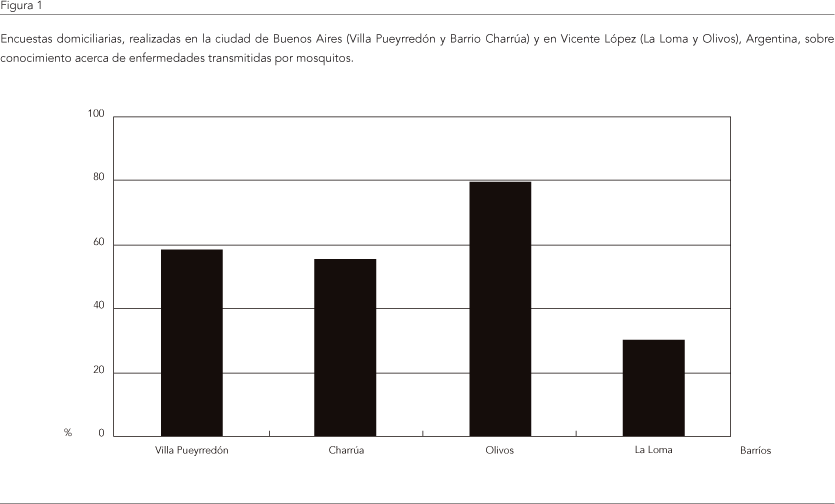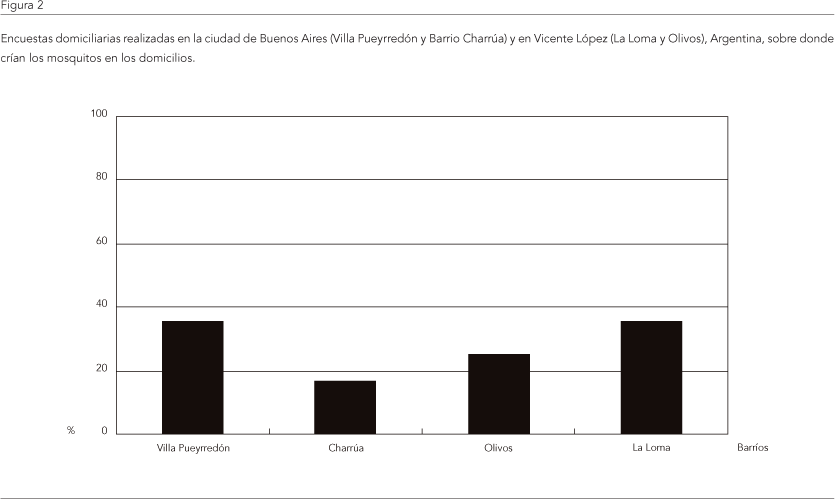With the objectives of dengue prevention, health promotion, and action-based research, two experiments were conducted in pilot areas of Buenos Aires and Vicente López, Argentina. In each area, community, government, and non-governmental references were identified. The study included an entomological survey (with ovitraps), environmental survey (with field observations, interviews, and workshops), and social survey (using questionnaires, interviews, and meetings). Spaces for dialogue and collaboration were developed with the community, thereby spawning participatory activities and empowerment. Environmental reordering and reduction of mosquito breeding sites were promoted by: incorporation of environmental issues and vector-borne disease prevention into the school curricula; neighborhood workshops; training of environmental agents to transmit information and train peers; and planning community environmental projects. The households were visited, seeking to integrate the residents into their own community environmental diagnosis. There were significant differences between the pilot areas in knowledge and social practices, but not according to socioeconomic status. The schools and health promotion settings proved to be the main community reference for promoting healthy environmental practices.
Dengue; Health Promotion; Local Strategies






